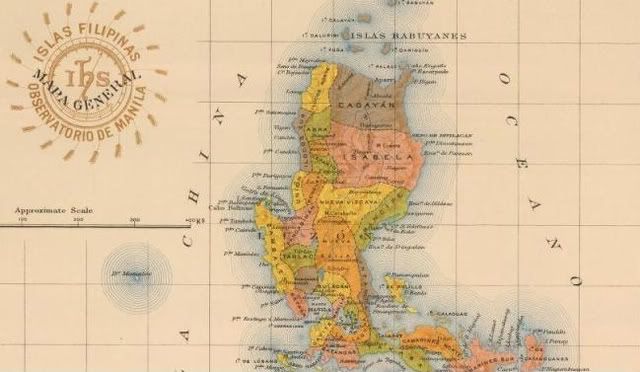



































Hold Infinity In The Palm Of Your Hand , And Eternity In An Hour .





































In today's tour of state-sponsored propaganda: America has an inferiority complex with China, Syria overcomes its challenges and a propagandist reveals himself. We begin in China.
Did you know America is privately envious of China's cultural superiority? If not, you're clearly not keeping up with The Global Times, one of China's state-run newspapers. This week, The Global Times is upset about an obscure State Department directive that's making it more difficult for Confucius Institues to operate in the United States. (Confucius Institutes are run by government-trained language instructors who teach foreigners Mandarin in some 380 locations throughout the U.S., but always avoid topics like the Dalai Lama or the Tiananmen Square Massacre ) Some of the griping about the directive is valid, especially concerning the renewal of visas for teachers at at the Confucius Centers. But in its typical ham-handed style, The Global Times makes a rather humorous but utterly serious extrapolation from the new policy in an editorial today titled "Why is Washington so scared of Confucius?":
The issue shows that the US' cultural confidence is not as strong as we thought. The promotion of Chinese language and culture by Confucius Institutes makes some Americans uneasy. Only culturally weak countries have such sensitivity.
Ah, you got us Global Times.
Want to add to this story? Let us know in comments or send an email to the author at jhudson@theatlantic.com. You can share ideas for stories on the Open Wire.
John Hudson

Will anybody listen? Don't hold your breath. Last year, Schultz said that 100-odd executives were promising to follow his lead. Last week, I chatted with dozens of CEOs of American companies, who were in Washington for a forum. Nobody there seemed about to launch a funding strike. On the contrary, many of them were mulling where to send their campaign dollars, as lobbyists beat the drum.
But if you want to understand why Schultz's comments matter, take a look at a survey recently carried out by The Conference Board for The Business Council, an industry body. This asked some 70 CEOs how they evaluated the current economic and political climate – and the results were striking. Most notably, when this group was asked which global institutions they considered most competent and credible, the body they put in first place was ... er ... themselves (about 90 per cent of these CEOs apparently think that "multinational corporations" have been "moderately", "very" or "most" effective in handling the challenges created by the economic crisis and financial shocks). After this, the CEOs apparently admire central banks: almost 80 per cent deemed these "moderately", "very" or "most" effective.
But the group that grabbed third place was the Chinese Communist Party leadership: it garnered a 64 per cent approval – or "effective" – vote for how it has handled political and economic challenges in recent years. This was way ahead of the US president's ranking (33 per cent), let alone US congress (with a dismal 5 per cent vote). Yes, you read that right: American capitalist CEOs apparently think that "communist" bureaucrats have been more effective than democratic western politicians. Even though many of these same CEOs have presumably elected those unloved American leaders themselves.
This finding partly reflects the extraordinary rise of China, which has done an impressive job of keeping its giant economy growing since 2007. True, there is no guarantee this can continue: as recent political scandals show, internal tensions are rising. But what impresses some global CEOs, at least right now, is how the Chinese government takes a long-term policy view. "The Chinese have some policies we hate, but at least we know what those policies are," the CEO of one multinational energy group explained, complaining that "the problem in the US is that policy-making is so short-term ... nobody knows what will happen next."
The other side of the equation goes back to Schultz's appeal. When The Business Council asked CEOs what they most badly wanted to see from their government, they put tackling fiscal woes and boosting economic growth first. But almost at the top – and way ahead of other issues such as energy or healthcare – was "leadership to end domestic political stalemates". Those CEOs – like Schultz and Occupy Wall Street – are also upset about gridlock.
Now, if you want to be an optimist, you might view this as just a short-term phenomenon. America has suffered plenty of malaise before (think of the 1970s), and Congress is designed to have checks and balances. If one party sweeps the polls this November, gridlock might end: today's rhetorical posturing might turn into a consensus for action.
But there again, it is possible to be much gloomier. Never mind that polls currently suggest the 2012 race will be a close call. What is more worrying is that Washington's gridlock may reflect bigger social splits. In particular, as authors ranging from Charles Murray to the FT's own Edward Luce argue in their new books, it seems that American society is now becoming more polarised in an economic, social and political sense. And that fragmentation is being exacerbated by the fact that powerful interest groups are using their cash to further their own ends.
This, of course, is precisely why men such as Schultz are so worried. But it is also why businesses are unlikely to go on a funding strike. As polarisation grows, they fear they must spend ever bigger sums to protect themselves (at last week's gathering of CEOs there were endless – angry – complaints that the White House is now stoking a "class war"). It is a structural tragedy, in every sense. George Washington may yet spin in his grave. Or, perhaps, Chairman Mao might chuckle.
It's been awkward—even comical—for the Aquino administration to be begging the United States for arms to defend our Scarborough Shoal claim, which it declared is based on the United Nations Convention on the Law of the Sea (Unclos): the Americans aren't with the convention.
The US—together with Israel and Turkey—is among 34 nations that have not ratified Unclos; they therefore officially do not recognize it. State Secretary Hillary Clinton in 2009 said the US Senate would ratify it soon. Three years later, it hasn't even scheduled a vote on it.
The US' rejection of Unclos—ratified by 162 nations including China and Russia—in fact unmasks American foreign policy's basic guideline: "Might is right." The US is the sole military global superpower now, its navy dwarfing that of Russia and China combined. Why would the US allow these 162 Unclos military weaklings tell what its all-powerful navy can and cannot do, where it can or cannot go?
Two Unclos provisions illustrate this point. Article 20: "In the territorial sea, submarines and other underwater vehicles are required to navigate on the surface and to show their flag." Would American nuclear submarines, which routinely, secretly traverse Chinese and Russian waters want that? Article 88: "The high seas shall be reserved for peaceful purposes." But international waters make up the base of US warships, from which it projects its military power globally.
President Aquino and his officials have been banging their fists on the table complaining to the world that China is refusing to have the dispute settled by the International Tribunal for Unclos.
They're in for a surprise: The Philippines isn't also with Unclos—when it comes to sovereignty disputes like that on Scarborough.
The Marcos government ratified Unclos in 1984. But it did not ratify the treaty in full, declaring that it doesn't recognize Unclos on certain issues. Guess which?
On issues of sovereignty. Our country formally filed an eight-paragraph document when it ratified Unclos, which declared that nothing in the treaty would apply to its territorial claims. Its Paragraph 4 reads: "Such signing shall not in any manner impair or prejudice the sovereignty of the Philippines over any territory over which it exercises sovereign authority, such as the Kalayaan Islands, and the waters appurtenant thereto."
In other words, we've declared that we do not recognize Unclos when it comes to our territorial disputes, such as that on Scarborough. The only body that can revise that restriction is the Philippine Senate.
And what were China's qualifications when it ratified Unclos in 1996?
On issues of sovereignty. China in its own declaration said that it "reaffirms its sovereignty over all its archipelagos and islands as listed in article 2 of the Law of the People's Republic of China on the territorial sea and the contiguous zone, which was promulgated on 25 February 1992." That law declared as part of China what it called the Zhongsha Islands, which included Huangyan (Panatag to us).
In other words, both the Philippines and China—in fact most of the countries which ratified Unclos—don't recognize the treaty when it comes to determining territorial disputes.
Didn't they bother check what Unclos tribunal does? Of the 19 cases brought to it since 1997, nearly all were about maritime disputes, i.e., commercial vessels in some tiff with a foreign government. The only case that remotely dealt with sovereignty was about Burma's (Myanmar) and Bangladesh's maritime boundaries at the Bay of Bengal between the two countries.
First, Mr. Aquino makes the colossal blunder of sending a warship against Chinese fishermen, thereby militarizing the dispute, even as the vessel embarrassingly turned tail after a few days as it ran out of supplies. Then he insists that the dispute be decided by a court which, however, can't have jurisdiction over it. This President is making us the laughing stock of the world.
* * *
My two columns exposing the Aquino camp's disgraceful operations of sending spurious letters to the editor have roused much reader interest, even fury. This is based on the fact that as monitored by this paper's Web version, the column "Aquino camp faking letters to the editor" has been the most-read opinion piece (as of Wednesday) in the past 30 days, even beating columns on burning national issues. Moreover, over 7,000 readers bothered to refer these columns to others, either through e-mail or social media postings, among the highest such referrals ever monitored. Despite the uproar, Aquino's black propaganda group—run reportedly by Secretary Ramon Carandang—continues to undertake this deceitful practice that it has surprisingly managed to still get their letters published. (I was told that there's a P25,000 bonus for an operative who gets his fake letter published.)
Be on the lookout, dear reader. There are three first steps to spot these fakers. First, these letters don't present logical analysis or facts but only asinine ad hominem arguments, bad-mouthing people who defy Mr. Aquino. While well-written, these letters brim with moralistic injunctions, frequently invoking the "People," in the way fanatics in medieval ages mouthed "God."
Second, Google their names or use people-search engines, and they don't exist, the only result generated being the published spurious letters. And third, e-mail them. Aquino's minions are so yellow to reply, or careful since technology can determine that they all use a single Internet Protocol address which, I'll bet, are traceable to Malacañang.
Expect a barrage of these fake letters with the resumption of the impeachment trial.
E-mail: tiglao.inquirer@gmail.com
In the futuristic 2025 setting of Call of Duty: Black Ops II, the United States has become locked in a second Cold War with China due largely to a shortage of rare earth elements, which are vital in the creation of a lot of the technology and advanced military hardware we use today.
In the present-day (in real life), China controls a huge percentage of the world's rare earth elements. The fictional future of Black Ops II has a much stronger real-world hook than your average techno-thriller.
When I spoke with Treyarch's studio head Mark Lamia last week, he was vague about the extent to which Chinese troops will factor into the story, either as enemies or as playable characters. But he did tell me about the real-world organization that players will be up against.
The primary state-sponsored opposing presence in Black Ops II's story will be represented by theShanghai Cooperation Organisation, who despite their China-centric name are a multinational organization created in June of 2001 between Kazakhstan, China, Kyrgyzstan, Russia, Tajikistan, and Uzbekistan. They are currently considering expanding, with Mongolia, Pakistan, India and Iran all have "observer status"—those four nations aren't full members, but they have expressed interest in becoming so.
"In our fiction, in the future," said Lamia, "[the SCO has] militarized even more so than they are now. They have their own special forces. Their own black ops.
"As the proxy war conflicts occur," he continued, referring to the fictional proxy wars in the game's 2025 conflict, "you might encounter these SCO forces." He was cagy on whether or not players would actually get to step into the boots of the SCO's black ops soldiers. "Maybe they'll be a part of the multiplayer. Who knows?"
The SCO describes the current-day goals on their official website thusly:
The main goals of the SCO are strengthening mutual confidence and good-neighbourly relations among the member countries; promoting effective cooperation in politics, trade and economy, science and technology, culture as well as education, energy, transportation, tourism, environmental protection and other fields; making joint efforts to maintain and ensure peace, security and stability in the region, moving towards the establishment of a new, democratic, just and rational political and economic international order.
With NATO to the West and America's interests in Japan and South Korea to the east, even today there is a fair amount of tension between the SCO, its nations, and the United States and its allies. According to the Council on Foreign Relations:
The increased prominence of the SCO has led policymakers and scholars to question if the organization might complicate the United States' ability to secure [Central Asian] interests. Some experts believe that Russia and China want to use the SCO to curb U.S. access to the region's vast energy supplies. Similarly, the SCO's call for the United States to withdraw military forces (USA Today) from the region was seen as an explicit challenge to the U.S. military presence in Central Asia. Lastly, SCO members are uneasy about certain U.S. policies, particularly its support for democratic reforms. "Frankly, none of the [SCO] countries shares our enthusiasm," about political reform, said CFR's Feigenbaum in his Nixon Center speech. The "color revolutions" in Ukraine, Georgia, and Kyrgyzstan, which unseated leaders loyal to the Kremlin, have also led Russia to view the U.S. presence in post-Soviet states with suspicion, while Beijing sees U.S. forces along its western border as part of Washington's strategy to contain China.
This all sounds like some thorny, topical material for a hugely popular military game to dig into.Black Ops II, however, has a narrative escape hatch for any potential controversy that could arise. As I prodded him about China and the SCO, Lamia was sure to repeatedly remind me that the game's real antagonist will be an individual named Raul Menendez, who is presumably acting alone.
Menendez has hacked into America's drones and robotic tanks and is attempting to stir up existing tensions and pit the two superpowers against one another. It's a shopworn but effective storytelling trick that will no doubt keep Treyarch from making China, a current global superpower, into the "real" bad guy in a game that will doubtless sell millions of copies worldwide.
All the same, this all feels much more relevant than past Call of Duty games. At the very least, the opposing force won't simply consist of Russian Ultranationalists and Middle Eastern religious extremists.
The Shanghai Cooperation Organisation [Official Page]
The Shanghai Cooperation Organization [Council on Foreign Relations]

****************************************************************************
You wanna know what I would find interesting?
A game in which the US is the bad guy.
Considering all the conflicts that we have been in, and have been negatively done in, I would find it an interesting piece to do an FPS in which the US is the opposing side. It would be controversial, but would definitely show that good vs. bad is relative to which side you're on during a war.
War is usually looked at as us vs. them and we're always right. But who is to say we are? While there are plenty of enemies that are a bit wacko-crazy- we're not always right. And sometimes war is just fighting for your country no matter which side you're on.
BEIJING — A lot of people search endlessly for the secret key or a magic formula that would enable them to understand China. Naturally, at some point, they will want to know how the Chinese are educated. The Middle Kingdom has many prestigious schools, but let us take a closer look at Peking University, the mother lode of the Chinese wenming.
Wenming is often translated as "civilization," but that is misleading. In a recent lecture at Peking University, the renowned linguist Gu Zhengkun explained that wenming describes a high level of ethics and gentleness of a people, while the English word "civilization" derives from a city people's mastery over materials and technology. Think about architecture.
"Peking University" is, of course, a Westernized name so that foreigners can find its address. The Chinese themselves, however, call their institutions of higher learning daxue (in Japanese: daigaku). Peking University is Beijing daxue or Beida, Tsinghua University is Qinghua Daxue and so on.
"Daxue is not a translation of Greek universitas," explains Professor Gu, but "a reference to one of the great Confucian classics, the Daxue".
The Daxue is often loosely translated as "The Great Learning," but it is really this: an instruction manual on how to become a junzi and then, perhaps, ashengren.
A junzi is the ideal personality in China's family-value based tradition, while a shengren is its highest member, a sage that has perfected the highest moral standards, called de, who mastered the principles of ren (benevolence), li(ritual), yi (righteousness), zhi (wisdom) and xin (faithfulness), and who now connects between all the people as if they were, metaphorically speaking, his family.
The historian Tu Weiming even calls the shengren "the highest form of an authentic human being".
The junzi and shengren of Confucianism are as clearly defined, unique and non-European as the bodhisattvas and buddhas of Buddhism are. Yet, the former are completely unknown to the educated Western public due to erroneous, biblical and philosophical European translations dating back to the 17th to 19th centuries.
As the historian Howard Zinn once remarked: "If something is omitted from history, you have no way of knowing it is omitted."
While a Western university's principal aim is to produce a skilled expert, a Chinese daxue's principal aim is to cultivate an ideal character. Anglo-Saxon students often seem surprised when they hear that Chinese daxue do not award Ph.D. degrees or "Doctors of Philosophy". They award a boshi or, literally, an erudite master.
The word for "philosopher" doesn't appear in the Chinese classics. Our so-called Chinese philosophy departments in the West are reminiscences of the imperial age. In fact, the Chinese word for philosopher, zhexue-jia, came to China via Japan not before 1874, where it is pronounced tetsugaku-sha.
As great educator and linguistic sage Ji Xianlin once remarked, "We practically know the West like the palm of our hand, but the West's vision of the East is still a murky confusion".
Maybe, since the West obviously lacks the concepts of shengren and junzi, let alone daxue, we should adopt those Chinese concepts, out of necessity and by common sense, just as Japan and China back in the 19th century adopted Western concepts such as "artist," "scientist" and "philosopher". It's simple reciprocity.
Of course, some Western philosophers like Immanuel Kant and Georg Wilhelm Friedrich Hegel have traditionally played down Chinese socio-cultural originality. Western scholarship is strategically withholding valuable information about China — it will always prefer European terminology to describe China because it wants to keep what the Germans call deutungshoheit — the prerogative of final explanation.
Or, as Slovenian philosopher and critical theorist Slavoj Zizek once said: "The true victory ('negation of the negation') occurs when the enemy speaks your language."
Tourists and imperialists rarely come to be taught; they call things in China just the way they call things at home — only to put their feet in their mouths later because all is clear mafan (trouble) and maodun (contradiction).
Using the correct terminology often makes a huge difference, indeed: Yes, a "Peking University," this architectural colossus, was founded in 1898, only recently by Western standards. Yet, the Chinese daxue can be traced back to its origins in the Spring and Autumn periods, some 700 to 500 years B.C.!
As Confucius once said: If names be not correct, language is not in accordance with the truth of things. It's known as the rectification of names.
Educated in error, the people of Europe to this day have no idea what they are missing: East Asia invented tens of thousands of non-European concepts they may have never heard about.
China is a wenming with a Confucian love for learning. And Peking University — that's a living shengren culture.

